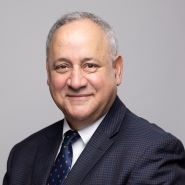Supreme Court Holds Proof of Willfulness is Not a Precondition to an Award of Profits under Section 43(a)
- May 04, 2020
- Article
Associated People
In late April, the United States Supreme Court decided Romag Fasteners, Inc. v. Fossil Group, Inc., Case No. 18-1233 (U.S. April 23, 2020) and held that proof of willfulness is not a prerequisite for an award of profits under Section 43(a).
The underlying dispute was straight forward. Romag Fasteners and Fossil had signed an agreement to use Romag’s fasteners in Fossil’s leather goods. Ultimately, Romag discovered that factories in China making Fossil products were using counterfeit Romag fasteners. Romag sued Fossil and certain retailers for trademark infringement and unfair competition under Section 43(a). The jury found that Fossil had acted callously, but rejected Romag’s allegation that Fossil had acted willfully. The district court rejected Romag’s request for an award of profits of approximately $6.7 million because willfulness had not been proven. Second Circuit precedent requires a plaintiff seeking a profits award to prove that the defendant’s violation was willful.
Resolving a longstanding circuit split, the Supreme Court relied on the plain statutory language of the Lanham Act’s remedial provision, Section 35, to hold that proof of willfulness was not required for an award of the defendant’s profits. Section 35 provides:
When a violation of any right of the registrant of a mark registered in the Patent and Trademark Office, a violation under section 1125(a) or (d) of this title, or a willful violation under section 1125(c) of this title, shall have been established . . . , the plaintiff shall be entitled, subject to the provisions of sections 1111 and 1114 of this title, and subject to the principles of equity, to recover, (1) defendant’s profits, (2) any damages sustained by the plaintiff, and (3) the costs of the action.
15 U.S.C. § 1117(a).
Construing Section 35, the Supreme Court ruled that although the statute does require a showing of willfulness for a precondition to a profits award when the plaintiff proceeds under § 1125(c) (Section 43(c)), the statute does not require proof of willfulness as a precondition to a profits award for the false or misleading use of trademarks under § 1125(a) (Section 43(a)). The Supreme Court reasoned that in cases for the false or misleading use of trademarks under Section 43(a), “the statutory language has never required a showing of willfulness to win a defendant’s profits.” Romag Fasteners, supra, Slip op. at *3 (emphasis in original).
The Supreme Court further reasoned that the Lanham Act speaks often and expressly about mental states and exhibits considerable care with mens rea standards. As a result, the absence of the requirement to prove willfulness for a violation of Section 43(a) in § 1117(a) “seems all the more telling.” Id. at *4.
The Supreme Court also rejected Fossil’s attempt to conjure a willfulness requirement out of the language contained in § 1117(a) “subject to the principles of equity.” The Supreme Court reasoned that it was unlikely “Congress meant “principles of equity” to direct us to a narrow rule about a profits remedy within trademark law.” Moreover, the history of trademark law is at best, muddled, on the issue of the requirement to prove willfulness for an award of the defendant’s profits. Ultimately, the Court concluded: “we do not doubt that a trademark defendant’s mental state is a highly important consideration in determining whether an award of profits is appropriate. But acknowledging that much is a far cry from insisting on the inflexible precondition to recovery Fossil advances.” Id. at *7. As for the parties’ competing policy arguments, those are better left for decision by Congress.
The Supreme Court vacated the Federal Circuit’s decision and remanded for further proceedings consistent with the opinion.
Justice Alito, joined by Justices Breyer and Kagan, concurred on the ground that “willfulness is a highly important consideration in awarding profits under § 1117(a), but not an absolute precondition.” Id., Alito, J. concurring, Slip op. at *1. Justice Sotomayor concurred in the judgment only “[b]ecause the majority is agnostic about awarding profits for both “willful” and innocent infringement as those terms have been understood . . ..” Id. Sotomayor, J., concurring, Slip op. at *2.
Romag Fasteners provides a plaintiff greater leverage in trademark infringement and unfair competition cases and lessens a plaintiff’s burden in seeking an award of a defendant’s profits for such claims.
Recent Publications
5 IP Rules to Know to Protect Your Business in the United States (article in French)
Coaching INPI Newsletter










 Counseling & Strategic Advice
Counseling & Strategic Advice IP Transactions
IP Transactions Litigation
Litigation PTAB Proceedings
PTAB Proceedings Start-Up
Start-Up Technology Transfer
Technology Transfer Trademark & Designs
Trademark & Designs U.S. Patent Procurement (Application Drafting & Prosecution)
U.S. Patent Procurement (Application Drafting & Prosecution)








